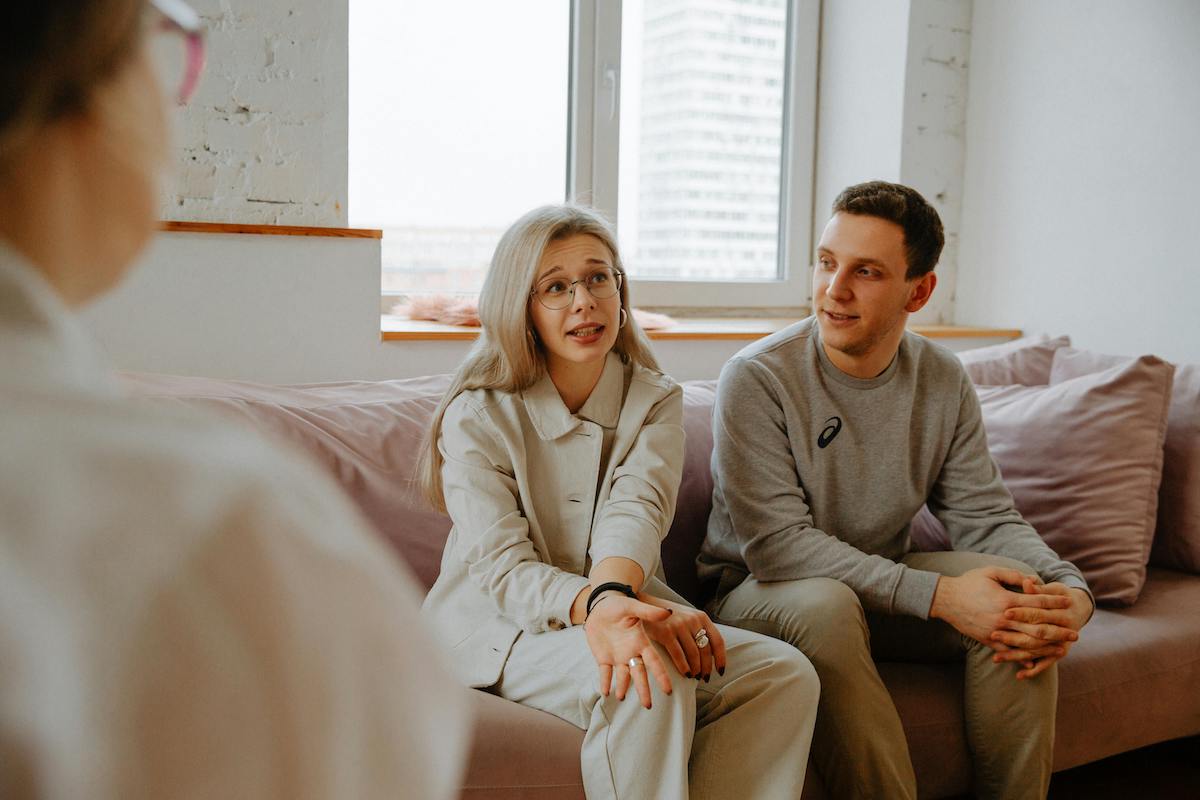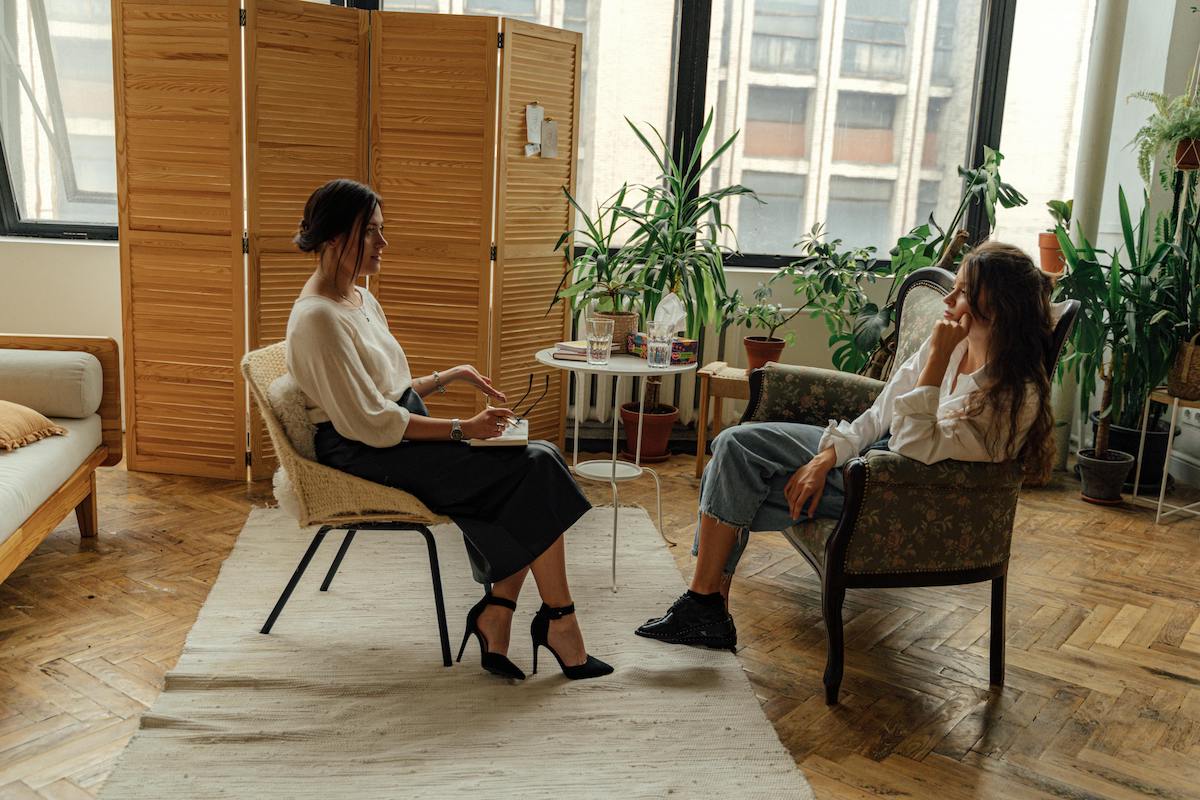If you’ve never been to couples therapy before, it can feel daunting.
Maybe you’ve tried to talk through things at home, but every conversation seems to be an argument. Or maybe there’s distance growing between you that neither of you quite knows how to name. Whatever brought you here, one thing is clear: something in the relationship needs to shift.
But will couples therapy actually help? Isn’t that just for relationships in crisis?
As a licensed couples therapist, I’ve worked with clients who came in on the verge of separation, others who simply felt disconnected, and many who were somewhere in between
The one thing they all had in common was that they needed a space to slow down the emotional chaos and actually hear each other.
Sessions are never about keeping score or proving who’s right. The ultimate goal is to help you move beyond arguments that go nowhere and into conversations that create clarity, connection, and lasting change.
I’ll walk you through exactly what happens in couples therapy—with full transparency—from your first sessions to the tools you’ll learn, how progress is measured, and what to expect if you or your partner are nervous about starting, and how to approach couples therapy healthily.
What Happens During Your First Sessions
The first few sessions in couples therapy are about laying the foundation. Your therapist needs to understand your story, and you both need to feel safe enough to share it.
We’ll usually start with:
Background and relationship history – How did you meet? What brought you together? What challenges have you faced? What patterns have shown up over time?
Clarifying your goals – Are you trying to heal from a betrayal? Reconnect after years of apathy? Decide whether to stay together? You don’t have to be on the same page at first, but knowing what you hope to get from therapy helps set the direction.
Understanding each of you as individuals – Your personal histories matter. How you argue, how you love, what triggers you—these are shaped by more than just your relationship.
In these early sessions, you’ll also get a feel for how the therapist works and whether the dynamic feels like a good fit. This relationship is foundational. You should feel like you can be honest, even when things are messy.

Tools You’ll Learn and Practise
Couples therapy isn’t just about talking—it’s about learning new ways to relate. Most sessions include guided conversations, but you’ll also start practicing specific tools that help you stay grounded, connected, and better understood.
Communication skills
One of the most common benefits of couples therapy is learning how to talk without escalating and how to actually listen without defensiveness. That might sound simple, but when emotions run high, most couples fall into cycles of interrupting, shutting down, or talking past each other.
We work on tools like active listening, de-escalation, and using “I” statements—especially during conflict, when your nervous system wants to shut down or lash out.
For example, instead of saying, “You never help around the house,” you might learn to say, “When I feel like I’m doing everything alone, I start to feel resentful and disconnected.” And your partner will practise listening—not to defend, but to understand.
Emotional awareness
So much of couples’ work is about tuning into what’s happening beneath the argument. You’ll learn to identify your emotional patterns, stay regulated during tough moments, and respond instead of react. These are the building blocks of intimacy and trust.
In therapy, we’ll help you name those deeper emotions in the moment.
You’ll learn to pause when you’re triggered, check in with yourself, and share from a place of vulnerability, not reactivity. That shift can change the entire tone of a conversation.
Intimacy-building or trust-repair exercises
Depending on what you’re working through, we may use exercises designed to rebuild trust, increase vulnerability, or reconnect emotionally and physically. These might include structured conversations, rituals of connection, or small daily practises that help you feel more attuned to each other.
For example, after an affair, a therapist might help you practise a structured “rebuilding trust” dialogue where the injured partner shares a trigger, and the other responds with validation, not defensiveness.
For couples who feel emotionally distant, we might practise rituals of connection like 5-minute check-ins or intentional touch to rebuild closeness.
Homework
The real test of therapy isn’t how you feel in the session—it’s how you show up at home. That’s why many therapists assign homework or suggest minor changes to try between sessions. These aren’t tests. They’re opportunities to practise what you’re learning in real time, with support and accountability.
This could be as simple as having a weekly check-in where you share one win and one worry. Or it might be something more layered, like tracking emotional triggers throughout the week and discussing them together in your next session.
These practises help bring the work out of the therapy room and into real life.
You May Also Have Individual Sessions
Although couples therapy is focused on the relationship, many therapists (myself included) will occasionally meet with each partner individually, especially in the early stages. These sessions can be incredibly valuable, and they don’t mean your therapist is taking sides.

Individual sessions allow you to:
Speak more freely about things that may be hard to express in front of your partner.
Process your own emotions, triggers, and history without worrying about how it lands.
Build trust with the therapist so you feel safe bringing your whole self into the couples work.
For example, if you’re holding back in joint sessions because you’re afraid of hurting your partner or their response, an individual check-in can give you space to unpack those fears.
If there’s trauma, infidelity, or long-standing resentment in the relationship, these sessions help lay the groundwork for more productive joint work.
It’s important to know: a good couples therapist won’t become a secret-keeper. If something comes up individually that affects the relationship, they’ll help you decide how and when to bring it into the shared space. Their role is always to support the relationship as a whole, not to ally with one person.
How Long Does It Take to See Success (+ What Success Looks Like)
One of the most common questions couples ask is, “How long will this take?” And the honest answer is: it depends.
There’s no set number of sessions that guarantees transformation. Some couples start feeling more connected within a few weeks. Others work together for months as they untangle deeper wounds or rebuild trust after a rupture.
What really determines success isn’t the number of sessions—it’s the level of engagement.
- Are both partners showing up honestly?
- Are you willing to try new ways of communicating, even when it feels awkward?
- Are you both open to seeing how your own patterns play a role?
Also, “success” doesn’t always mean staying together.
For some couples, therapy leads to reconnection and renewed intimacy.
For others, it brings clarity that the relationship has run its course, and gives them a healthier, more respectful path to parting ways.
In either case, therapy helps create emotional safety, self-awareness, and the tools to make intentional choices instead of reactive ones.

How Does Therapy Help?
Couples therapy isn’t just for major crises, but a tool to help you slow down reactivity and understand what’s being said beneath the surface.
Ultimately, you should expect couples therapy to create space to engage with one another and practise new ways of connecting that feel safer, more honest, and more sustainable.
Whether you’re working through conflict, healing from betrayal, rebuilding trust, or simply trying to feel close again and build stronger habits, therapy offers structure, insight, and support.
It’s a space to be real and have productive conversations with each other.
Even if you’re unsure whether you want to stay or go, therapy helps you make that decision from a place of clarity, not crisis.
If you’re considering couples therapy but feel nervous about what to expect, I’d be happy to share more with you and take the first step together.
SCHEDULE A FREE 20-MINUTE CONSULTATION TODAY